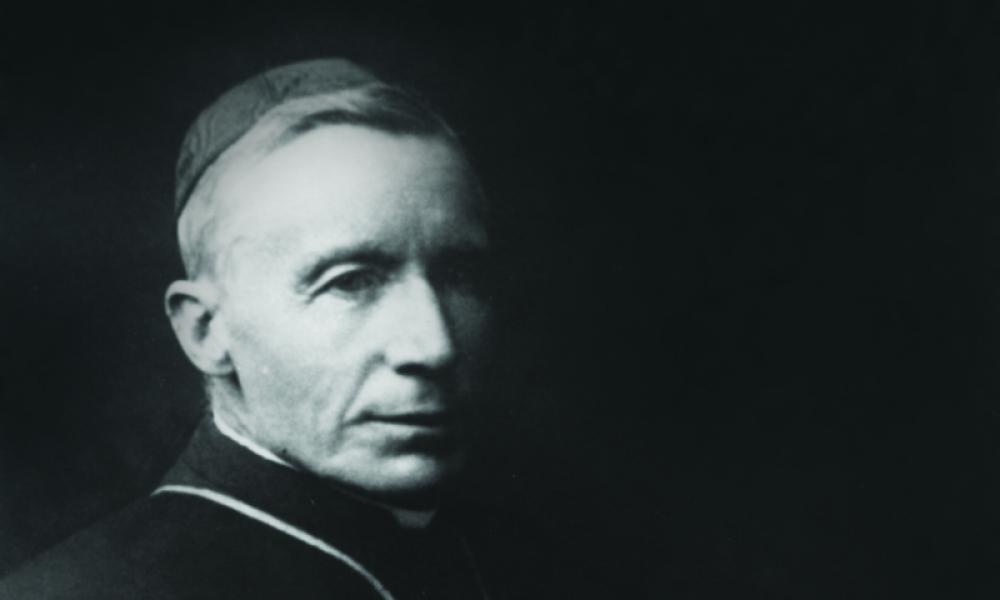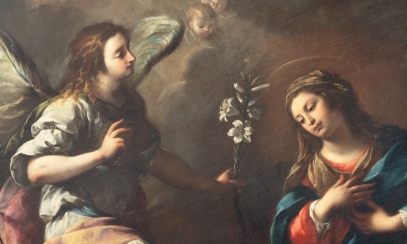
Honoring workers
Cardinal Gibbons of Baltimore successfully urged the pope not to allow the condemnation of the Knights of Labor in 1887. He said that the union did not demand blind obedience of its members and did not bind its members to keep secrets from the Church. On the other hand, he added, the workers’ right to associate is a “natural and just” means to make just demands against the evils of the day. And, he noted, the Church must support the improvement of the conditions of “the poor multitudes.” Every September, we honor workers. It is good for us to reflect a bit on this theme.
Pope Leo XIII, in his famous letter, Rerum novarum (1891), took up the cause of workers and especially the evil “that a small number of very rich men have been able to lay upon the teeming masses of the laboring poor a yoke little better than that of slavery itself.”
Cardinal Gibbons of Baltimore
Now, one of the pope’s major purposes in this letter was to oppose socialism’s desires to eliminate private property and to have the state meddle into the affairs of the family, the basic society established by God for the begetting and raising of children. Leo also urged workers and owners to avoid conflict, especially class warfare, but resolve all in the light of the Gospel. Particularly, the pope noted that it is a matter of strict justice that employers provide what later will be called a living, family wage. For the support of workers, he encouraged the growth of unions; in fact, he cited Proverbs 18:19: “A brother that is helped by his brother is like a strong city.” Clearly his aim was that all work together for the common good, which includes the just demands of all concerned. He never promoted an adversarial approach to achieving the common good, though some tactics may, at times, be necessary. This document was produced at a time when workers really were very poor.
Blessed John Paul II updated the Church’s social teachings on labor in 1981 with his letter, Laborem exercens. Here he focused on the worker as a human person who needs to be in solidarity with others (of course, he had Poland especially in mind). Every human being is a worker in this sense, including what we call labor and management, and thus everyone has a dignity which is to be respected. Thus the pope could write: “human work is a key, probably the essential key, to the whole social question.” It is the worker (every human being) who gives worth to the work done and not the other way around; work helps us to be more human.
John Paul noted that the Church’s historic support of unions was based on the horrible conditions of workers. Now many workers in poor countries need to feel the solidarity of those workers who no longer experience such poverty. In addition, society needs to do all it can to help people find work and, for those who can’t, to provide subsistence support. The pope then states that a just wage for work done is to be at least a family wage, which includes appropriate benefits and the right to rest.
Then John Paul notes that workers have a right of association in order to achieve a good for the group and to further the common good rather than to engage in a struggle against others. It is this search for the common good, especially in times of economic stress, which can place limits on the call for certain goods for a particular group. He then makes a point that unions’ engagement in politics is always to further the common good rather than to further a political party. He also speaks of the strike as a legitimate right but one which is to be a last resort. He adds: “when essential community services are in question, they must in every case be ensured, if necessary by means of appropriate legislation. Abuse of the strike weapon can lead to the paralysis of the whole of socioeconomic life, and this is contrary to the requirements of the common good of society…”
Finally, the pope speaks of the care we must have for immigrant workers, especially that they not be exploited. He concludes this letter with a wonderful discussion of the spirituality of work.
All of us engage in some way in the creation of our world since we are in the image of God. May the respect we rightfully seek for ourselves be poured out in abundance for others.



